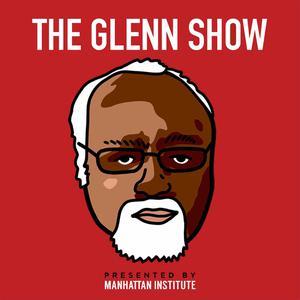
Razib Khan's Unsupervised Learning
Razib Khan
- 1 hour 44 minutesDan Hess: the fertility collapse
On this episode of Unsupervised Learning Razib has a wide-ranging conversation with Dan Hess, the man behind the More Births account on social media. An engineer with a large family in the DC area, Hess’ essays on topics like Israelis’ high birth rate have gained the attention of X, with an account that has come from a few hundred followers to more than 30,000 in 2 years.
Razib and Hess first review the birth-rate collapse seen worldwide in the past two decades. They discuss the relatively abrupt cultural pivot that has occurred since the turn of the century, with the end of the “overpopulation” narrative typified by Paul Erhlich’s Population Bomb, the rise of the “birth dearth” and the natalist movement. They talk about the most extreme cases of low total fertility rates (TFR) in Europe and East Asia, but also the decline in societies like the US, Latin America and the Middle East. Hess addresses both possible causes and possible solutions. They also discuss historical and demographic factors that impact fertility; for example, which religions have been the most pro-natalist? Hess also puts a particular focus on South Korea, the world’s most extreme case of a sharp decrease, with a TFR of about 0.70 children per woman (vs. 2.1 replacement), as well as exceptions to the rule like Haredi Jews and the Amish. Finally, Razib and Hess tackle why we should care about slower population growth in this century, from dependency ratios to the impact on cultural vitality.
29 January 2025, 8:30 pm - 52 minutes 5 secondsBrian Chau: welcoming the AI-age and DeepSeek
On this episode of Unsupervised Learning Razib talks to Brian Chau, who writes at the From the New World Substack. A graduate of the University of Waterloo and former software engineer with a background in pure mathematics, today Chau is executive director of the Alliance for the Future, a think tank that believes artificial intelligence will transform our world for the better.
Chau addresses the great “doomer vs. anti-doomer” debate, and argues for an anti-catastrosophist position. He also makes the case that increasing scaling has started to hit diminishing returns, and the expectation that artificial intelligence will continue to gain power purely through throwing more resources at the same problems. Then, they discuss the revolutionary impact of the recent advances DeepSeek has made in China (an issue he addresses on his Substack). Chau breaks down the technological nuts and bolts, as well as geopolitical and economic consequences.
29 January 2025, 1:40 pm - 1 hour 10 minutesJohn Hawks: 2024 in Neanderthals, Denisovans and Hobbits
On this episode of Unsupervised Learning, third-time guest John Hawks returns after two years to discuss what we’ve learned in paleoanthropology since he and Razib last talked. Hawks obtained his PhD under Milford H. Wolpoff, and is currently a professor in anthropology at the University of Wisconsin. Hawks has also co-authored Almost Human: The Astonishing Tale of Homo naledi and the Discovery That Changed Our Human Story and Cave of Bones: A True Story of Discovery, Adventure, and Human Origins with Lee Berger.
Razib first presses Hawks on what we know about archaic human admixture into modern populations, and particularly what we’ve learned about Denisovans. They discuss how many Denisovan populations there were, how many Denisovan fossil remains we have, and why it has taken so long for researchers to assign a species name to this lineage of humans. Hawks also address the puzzle of the phenomenon of why there are at least two pygmy hominin populations in Southeast Asia. Perhaps humans too are subject to island dwarfism like many other mammals? Also, Razib wonders why Southeast Asia was home to such a startling variety of humans at once prior to the arrival of modern populations. They discuss all of this in light of the framework of Out-of-Africa, the recent spread of anatomically modern humans outside of Africa. Razib questions how robust this model is today given our understanding of modern humans’ extensive and repeated interactions with both Neanderthals and Denisovans. Finally, Hawks covers some controversies over fossils being sent into space that roiled the archaeological world last year.
26 January 2025, 8:30 pm - 56 minutes 41 secondsDavid Mittelman: pushing the genomic frontier in 2024
Three years ago David Mittelman came on Unsupervised Learning to talk about emerging possibilities on the frontiers of genomics, and his new startup at the time, Othram. Since then, Othram’s work has been featured widely in the media, including in a Law & Order episode, and the firm has solved thousands of unsolved cases, with nearly 500 public. For over a decade, Mittelman has been at the forefront of private-sector genomics research. He trained at Baylor College of Medicine and was previously faculty at Virginia Tech.
Razib and Mittelman discuss the changes that the rapid pace of genomic technology has driven in the field of genetics, from the days a $3 billion dollar draft human genome in the year 2000 to readily available $200 consumer genomes in 2024. One consequence of this change has been genetics’ transformation into information science, and the dual necessities of increased data storage and more powerful, incisive data analysis. Genomics made information acquisition and analysis so easy across the research community that it allowed for the pooling of results and discoveries in big databases. This has pulled genetics out of the basic science lab and allowed it to expand into an enterprise with a consumer dimension.
Mittelman also discusses the improvements and advances in DNA extraction and analysis techniques that allow companies like his to now glean insights from decades-old samples, with bench sciences operating synergistically with computational biology. Razib and Mittelman talk about how he has helped solve hundreds of cold cases with new technology, in particular, at the intersection between new forensic techniques and both whole-genome sequencing and public genetic databases. They also discuss the future of genetics, and how it might touch our lives through healthcare and other domains, passing from inference to fields like genetic engineering
23 January 2025, 8:30 pm - 35 minutes 36 secondsIn Search of Indo-Europeans in 2024: of Catacombs and Corded Ware
On this episode of Unsuperivsed Learning reviews what we know about Indo-Europeans as 2024 comes to a close. This is prompted by a new preprint Ancient genomics support deep divergence between Eastern and Western Mediterranean Indo-European languages, which finally establishes that populations in Northern and Southwestern Europe derived from a different steppe-origin population than the Greeks and Ilyrians of the Balkans, as well as Armenians. Razib talks about how ancient DNA is resolving long-standing disputes in historical linguistics, and coming down on the side of very particular sets of hypotheses. He discusses Peter Bellwood’s First Farmers: The Origins of Agricultural Societies, and its models about the origins of Indo-European languages, and how they have been falsified by paleogenomics. Razib also steps through the relationship of particular Indo-European groups to ancestral archaeological cultures like the Corded Ware, Bell Beaker and Catacomb Cultures. He also talks about the connections between charioteers and the early Mycenaeans, and looks at Robert Drews’ ideas in Coming of the Greeks. Finally, he addresses outliers in the ancient DNA data that indicate connections between locales as disparate as Scandinavia and Cyprus 4,000 years ago.
20 January 2025, 8:30 pm - 1 hour 34 minutesMegan McArdle: American food culture, artisanal to industrial
This week on Unsupervised Learning Razib talks to Megan McArdle, author of The Up Side of Down: Why Failing Well Is the Key to Success and Washington Post columnist and op-ed board member. McArdle was raised in New York City and attended Riverdale Country School. She obtained an undergraduate degree in English from University of Pennsylvania and an MBA from the University of Chicago. A pioneering blogger based out of New York City and covering the site of the WTC in the wake of 9/11, McArdle went on to work at The Economist, The Atlantic and Newsweek.
In this episode, the discussion largely focuses on McArdle’s research about the cultural history of food and cooking in the US. But first they discuss the economic implications of Donald Trump’s election, and the domestic consequences shifting toward a tariff-heavy trade regime. McArdle lays out the case that a massive tariff would have the same impact as a tax, not to mention the broad disruptive economic effects on large companies’ supply chains.
Then they move on to the changes in American cuisine over the last few centuries, and the shifts driven by technology and innovation. McArdle points out that in the 19th century, gelatin dessert was a luxury and an exotic treat because it was labor intensive to prepare. But by the middle of the 20th century industrial-scale food processing made gelatin, in particular Jell-o, a cheap commodity, and it became associated with the lower classes. Similarly, before factory farming, chicken and eggs were more expensive than red meat, and thus viewed as high-end ingredient (whereas today, chicken is far cheaper than beef). Finally Razib and McArdle talk about how the plentitude of food available in the 21st century contributes to the obesity epidemic that has only ceased its relentless expansion with the advent of Ozempic.
17 January 2025, 8:30 pm - 1 hour 7 minutesNikolai Yakovenko: the Singularity is not here
On this episode of Unsupervised Learning, Razib catches up with Nikolai Yakovenko about the state of AI at the end of 2024. Yakovenko is a former professional poker player,and research scientist at Google, Twitter and Nvidia. With a decade in computer science, Yakovenko has been at the forefront of the large-language-model revolution that has given rise to multi-billion dollar companies like OpenAI, Anthropic and Perplexity and hundreds of smaller startups. Currently, he is the CEO of DeepNewz, an AI-driven news startup that leverages OpenAI’s latest model. Full disclosure: Razib actively uses and recommends the service and is an advisor to the company.
Razib and Yakovenko first review what makes the last few years special, the rise of large-language-models on top of neural network architecture of transformers. Yakovenkoi discusses how far they’ve come since OpenAI released ChatGPT to the public in the fall of 2022, and how people have been using the underlying technology to develop applications atop it. Despite predictions of mass unemployment, Razib points out that two years later America is at full employment, and only niche fields like translation have been impacted. In contrast, Yakovenko points out that most software developers use artificial intelligence in some form to aid in their daily engineering work, noting the possibility that the AI revolution is integrating itself seamlessly as a utility for preexistent jobs. They also discuss the fact that though AI is a booming field, only one brand-name company has so far emerged in the industry, OpenAI. Though they agree that the current hype cycle is now abating, it is clear that the major investments in the field like data centers will continue from major players as AI-driven applications like self-driving cars become more and more mainstream.
14 January 2025, 8:31 pm - 1 hour 21 minutesYascha Mounk: American democracy in 2024
On this episode of Unsupervised Learning, Razib talks to Yasha Mounk. The founder of Persuasion, a contributor to The Atlantic and a professor at Johns Hopkins, Mounk now has his own Substack, where he hosts his weekly column and podcast. He is the author of The Great Experiment: Why Diverse Democracies Fall Apart and How They Can Endure, The People vs. Democracy: Why Our Freedom Is in Danger and How to Save It and The Identity Trap: A Story of Ideas and Power in Our Time.
Razib and Mounk first discuss Mounk’s immediate reaction to the 2024 election, and how the Democrats might pick up the pieces going forward. Mounk believes that the argument in his book The Identity Trap, neatly captures many of the problems for the party. Democrats leaned in on the inevitably of racial polarization in an age of progressive depolarization. Razib also asks Mounk for his retrospective on the COVID-19 epidemic, in which he was a commentator who argued in The Atlantic for more stringent habits and then later, for an opening up. They also discuss how the Public Health establishment COVID interventions threw the whole field into disrepute, and what it tells us about the nature of expertise.
Then Razib asks Mounk about European nations and their future. In particular, whether their low productivity and fertility rates combined with mass migration doom them to a future of irrelevance and national dissolution. Mounk highlights the unfortunate case of the UK in particular, though he notes that his home nation of Germany is finding itself in a precarious situation with China competing with its manufacturers and Russia cutting off its gas supply. Finally, Razib closes by asking Mounk whether he is still as worried about American democracy in the wake of the 2024 Trump win as he was in 2016.
11 January 2025, 8:30 pm - 1 hour 17 minutesAnatoly Karlin: Russian nationalism to American globalism
Today Razib talks to Russian commentator and transhumanist Anatoly Karlin. Karlin has a BA in political economy from U C Berkeley. For most of the 21st century he had positioned himself as part of the right wing of the transhumanist movement. He returned to Russia after living in California’s Bay Area for several years, and from there he promoted a nationalistic vision in opposition to American military and cultural power. With the February 2022 invasion of Ukraine, he joined a chorus of Russian warbloggers cheering on the inevitable conquest.
And then, like Richard Hanania, he did an about-face on the Russian invasion, reversing many of his views. Today Karlin is a digital nomad, and aligns firmly with American cultural and technological progressivism. He endorsed Kamala Harris and promotes what he terms a “Biosingularity.” His Substack is “Elite Human Capital,” a term popularized by Hanania. Arguably Karlin has gone further than Hanania in endorsing the new American global order, underpinned both by the US’s technological and cultural dominance.
Razib and Karlin talk about how he came to invert so many of his views, while at the same time remaining fundamentally committed to the transhumanist project, like combating aging. They discuss the contrast between Russia and the US, and how Karlin came to see Vladimir Putin’s decision to invade Ukraine and stand against the West as folly. Karlin also discusses his peripatetic lifestyle, the new friends made and those lost due to his conversion to what he would have previously called “globalism.”
8 January 2025, 8:30 pm - 39 minutes 4 secondsThe Horse: Man's Most Useful CompanionDuring the Ice Age our ancestors often painted the horse in caves
On this week’s episode of Unsupervised Learning Razib covers the archaeology, genetics and history of the horse. Dogs may be man’s best friend, but for thousands of years horses were humanity’s most valuable domesticate. While pigs, cattle and goat were essential elements of the world’s subsistence economies, the horse in its military roles was a luxury good, with Chinese emperors sending delegations to Central Asia in search of “heavenly steeds.”
But while dogs have been humanity’s sidekick for at least 20,000 years, and cattle and caprids for about 10,000 years, the horse is a relatively new addition, tamed on the Central Asia steppe only some 5,500 years ago. But despite their late entrance, horses quickly proved economically critical, opening up trade routes, increasing farming productivity and remaining weapons of war down until the last futile Polish cavalry charges in 1939 against invading Nazis. The horse’s role as a loyal steed was not inevitable; repeat attempts to domesticate tropical zebras have failed, while most other Eurasian megafauna, from moose to elephants, remain wild.
The horse is part of the “secondary products revolution,” with high-fat milk and manes that can be refashioned to adorn human helmets, but just as importantly it was a pre-modern information technology revolution. Mongolian cavalry-messengers were able to cut a year-long trek across Eurasia down to a month. And between about 300 AD and 1500 AD, mounted cavalry dominated the Eurasian continent, driving the emergence of new empires and hastening the collapse of old ones. Since its domestication on the Pontic steppe in 2500 BC, which may have saved the species from extinction, the horse has played a critical part in world history, only really finally passing into obsolescence on the farm, the road and the battlefield in the past century and a half.
5 January 2025, 8:30 pm - 1 hour 7 minutesWilfred Reilly: confronting historical myths propagated in schools
On this episode of Unsupervised Learning Razib talks to returning guest Wilfred Reilly about his new book, Lies My Liberal Teacher Told Me: Debunking the False Narratives Defining America's School Curricula. Reilly holds a Ph.D. in political science from Southern Illinois and a J.D. from the University of Illinois. Raised in a working-class neighborhood on Chicago’s South Side, he worked in the private sector before his career in academia, including stints as a political canvasser, real estate investor and a corporate sales executive. He is also the author of Taboo: 10 Facts [You Can't Talk About] and Hate Crime Hoax: How the Left Is Selling a Fake Race War. His writing appears in a wide array of publications like Commentary, National Review and Quillette.
Razib and Reilly tackle the reality that over the last few decades the American education system has reoriented itself to teach values by slanting a neutral historical narrative not specific to a particular viewpoint in the direction of what is arguably distortion and misinformation. Perhaps the most egregious case of this is the narrative about slavery, making the institution a uniquely American sin when the reality is that until the 19th century it was a widespread practice across almost all societies. In fact, as Reilly points out, it was the West, and in particular Britain, that ended the practice across much of the world. An aspect of counterfactually reorienting the historical narrative for didactic purposes is that many educators have reinvented peoples and places to serve their own idealism; Native Americans for example have become repurposed into premodern environmentalist activists, even though their arrival in the New World over 10,000 years ago was indisputably associated with megafaunal extinction. Reilly shows that this pattern of reinterpreting and shading the past applies even to events within the lifetimes of the living. The various retellings of the “Red Scare” periods of American history after World War I and World War II obfuscate the reality that the US in the 20th century did have a Communist movement that infiltrated the professions and even the diplomatic corps; Joe McCarthy’s excesses seem to have ended up justifying amnesia about a global political movement that transformed much of the world and had very real aims to take over the USA.
Lies My Liberal Teacher Told Me highlights that current attempts to retell history are not actually even liberal, but simply radical, and reflect the capture of education schools by Leftist activists since the 1970s. Rather than equipping children for the modern economy and expanding their understanding of the world, the regnant generation of educational practitioners seems intent on creating a cadre of 21st century radicals whose vague view of the past is rooted in ideology rather than any observable reality.
2 January 2025, 8:30 pm - More Episodes? Get the App
Your feedback is valuable to us. Should you encounter any bugs, glitches, lack of functionality or other problems, please email us on [email protected] or join Moon.FM Telegram Group where you can talk directly to the dev team who are happy to answer any queries.
 Quillette Podcast
Quillette Podcast
 Subversive w/Alex Kaschuta
Subversive w/Alex Kaschuta
 "Upstream" with Erik Torenberg
"Upstream" with Erik Torenberg
 The Glenn Show
The Glenn Show
 Conversations with Tyler
Conversations with Tyler